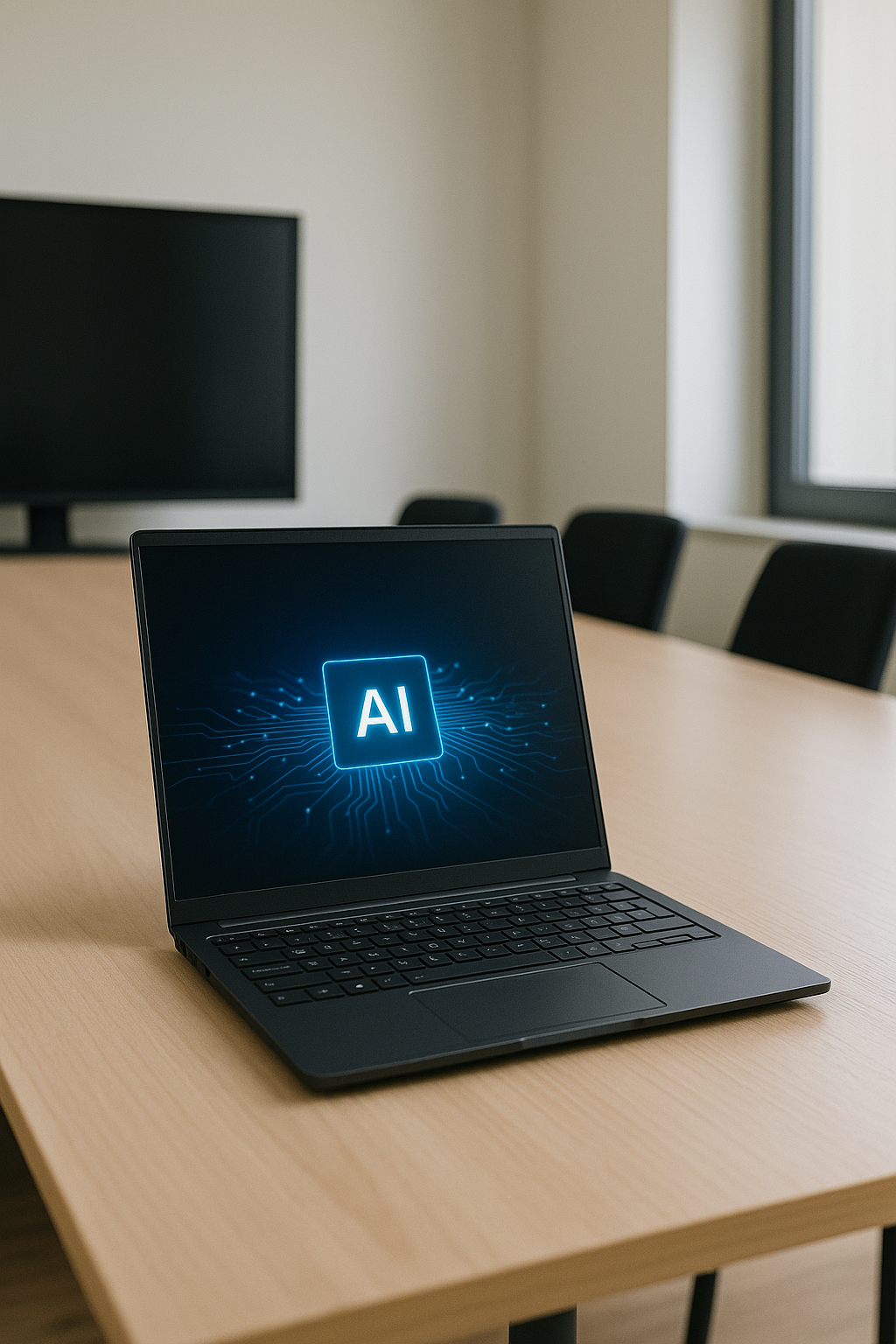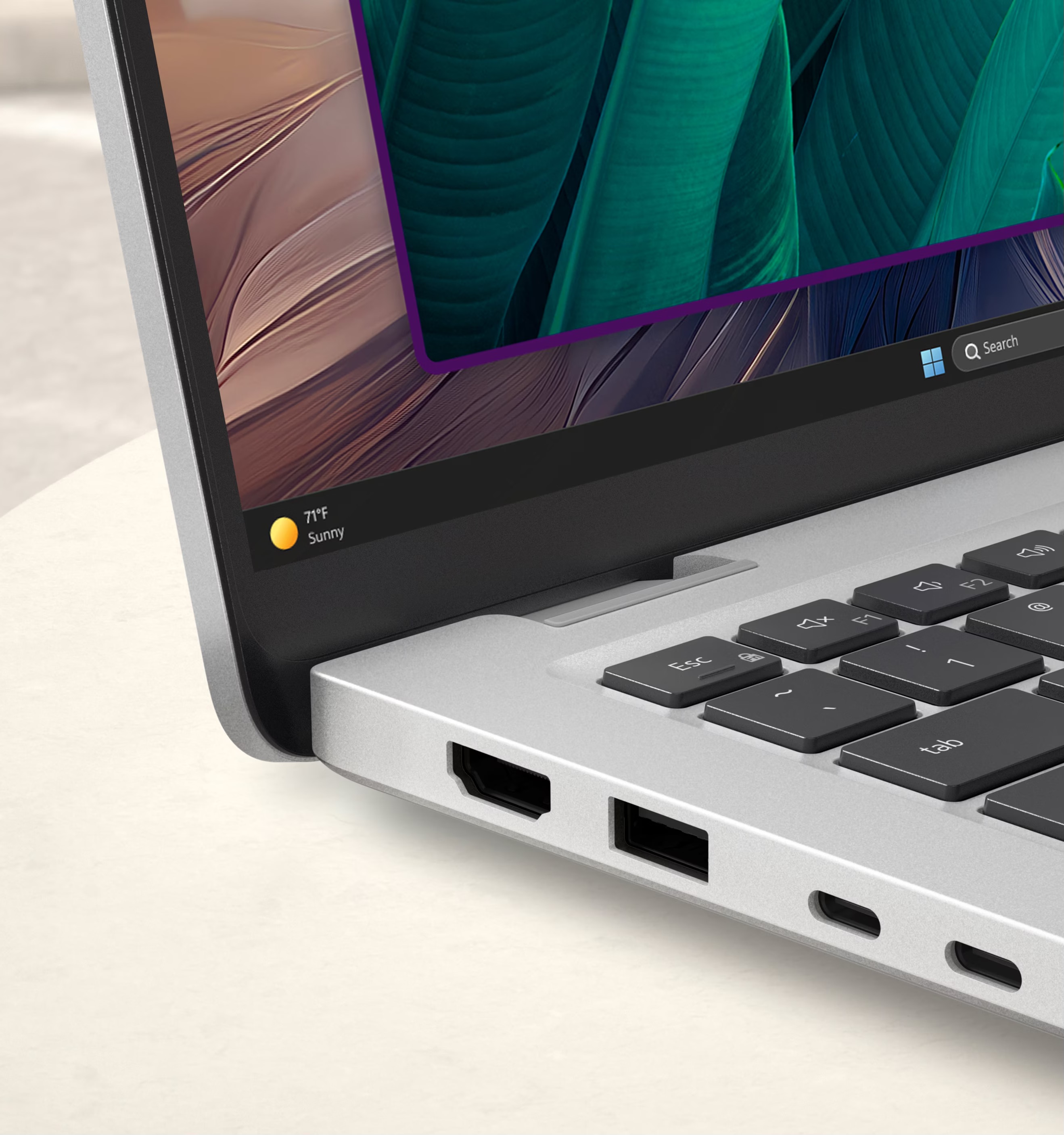Here are five benefits of choosing a business-grade laptop with AI optimisation built in:
Making the right choice for your business
When you decide it’s time to look for new computers, here are a few practical pointers to help you pick the right AI-optimised business notebook:
• Look for a vendor-grade “business” laptop (rather than generic consumer models) — business models tend to offer longer software/driver support, firmware updates and enterprise-grade security.
• Prioritise models that explicitly advertise AI-capabilities (NPUs, AI-accelerated processing, “AI PC” branding) and pair that with robust specs (solid-state storage, sufficient RAM, good thermal design). For example, notebooks designed for edge-AI workloads emphasise specialised CPUs/GPUs plus NPUs.
• Consider battery life and mobility: AI features may demand more processing, so cooling and battery management matter. Models with adaptive power management are becoming more common.
• Ensure strong security and lifecycle support: look for built-in encryption, secure boot, firmware protections, plus vendor commitments to driver/BIOS updates. This especially matters when employees may work remotely.
Business laptops with AI: Frequently asked questions (FAQs)
1. What exactly counts as an “AI-optimised” laptop?
An AI-optimised laptop includes hardware specifically designed to process AI workloads efficiently — most commonly an NPU (Neural Processing Unit) or similar accelerator. This allows the device to run AI features locally, without relying heavily on the cloud, improving speed, privacy and battery use.
2. Do AI-optimised laptops benefit non-technical teams as well?
Yes. Even non-technical users see improvements through faster apps, better noise reduction in calls, automated tasks, improved camera features, and smoother multitasking. The advantages apply across marketing, sales, administration, HR and management.
3. Are AI laptops compatible with existing company software?
In nearly all cases, yes. AI-optimised laptops run standard Windows and business applications. The AI hardware simply enhances performance; it does not limit compatibility. Most vendors also provide long-term driver and OS support for enterprise environments.
4. Do AI laptops require special IT management or maintenance?
No special tools are required. They can be managed using the same MDM platforms and IT policies as other business laptops. AI features are usually integrated at system level and maintained through regular vendor updates.
5. Is an AI-optimised laptop more expensive to operate?
Typically not. While the initial purchase price can be slightly higher, AI-based efficiency can reduce energy usage, extend device lifespan and minimise user downtime — which lowers total cost of ownership over time.
6. Will AI-optimised laptops stay relevant as AI evolves?
Yes. Devices with dedicated NPUs are designed to support upcoming AI-driven applications and OS features. This ensures better long-term performance compared to traditional laptops without AI acceleration.
7. Are AI-optimised laptops secure for confidential business data?
AI features often improve security rather than weaken it. Many models support on-device threat analysis, secure biometric authentication, and real-time anomaly detection — all processed locally for higher protection and privacy.
Final thoughts
For small and medium-sized businesses, the move to AI-optimised business laptops is less about hype and more about practical advantage. It’s an evolution of the business notebook from being “just a portable workstation” into a trusted productivity and security platform. When your team has hardware that anticipates their workflows, adapts to mobile-future demands and stays secure in an increasingly complex environment, you’re setting a foundation not only for today’s tasks but for tomorrow’s growth.








